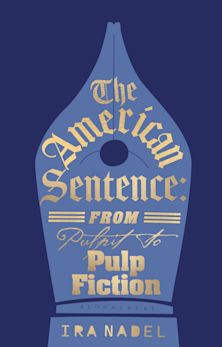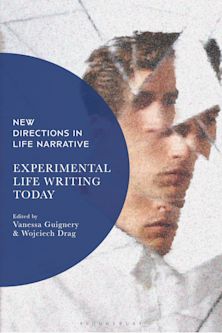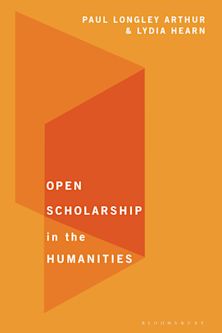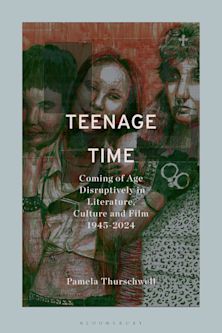Chance and the Modern British Novel
From Henry Green to Iris Murdoch
Chance and the Modern British Novel
From Henry Green to Iris Murdoch
Quantity
In stock
$68.35
RRP $75.95
Website price saving $7.60 (10%)
This product is usually dispatched within 3 days
- Delivery and returns info
-
Free CA delivery on orders $40 or over
Description
Chance, and its representation in literature, has a long and problematic history. It is a vital aspect of the way we experience the world, and yet its function is frequently marginalised and downplayed.
Offering a new reading of the development of the novel during the mid-twentieth century, Jordan argues that this simple novelistic paradox became more pressing during a period in which chance became a cultural, scientific and literary preoccupation - through scientific developments such as quantum mechanics and the uncertainty principle, the influence of existential philosophy, the growth of gambling, and the uncertainty provoked by the Second World War.
In tracing the novel's representation of chance during this crucial period, we see both the development of the novel, and draw wider conclusions about the relationship between narrative and the contingent, the arbitrary and the uncertain. While the novel had historically rejected, marginalised or undermined chance, during this period it becomes a creative and welcome co-contributor to the novel's development, as writers such as Samuel Beckett, B.S. Johnson, Henry Green and Iris Murdoch show.
Offering a new reading of the development of the novel during the mid-twentieth century, Jordan argues that this simple novelistic paradox became more pressing during a period in which chance became a cultural, scientific and literary preoccupation - through scientific developments such as quantum mechanics and the uncertainty principle, the influence of existential philosophy, the growth of gambling, and the uncertainty provoked by the Second World War.
In tracing the novel's representation of chance during this crucial period, we see both the development of the novel, and draw wider conclusions about the relationship between narrative and the contingent, the arbitrary and the uncertain. While the novel had historically rejected, marginalised or undermined chance, during this period it becomes a creative and welcome co-contributor to the novel's development, as writers such as Samuel Beckett, B.S. Johnson, Henry Green and Iris Murdoch show.
Table of Contents
Acknowledgements
Preface
Introduction
1. A Fine Thing: A History of Chance
2. 'Swear to tell me everything that goes wrong': Henry Green and Free Will in the Novel
3. 'I admire the will to welcome everything - the stupid violence of chance': Samuel Beckett and the Representation of Possibility
4. 'Let's Celebrate the Accidental': B.S. Johnson, the Aleatory and the Radical Generation.
5. 'The incomprehensible operation of grace': Mess, Contingency, and the Example of Iris Murdoch.
Conclusion
Bibliography
Index
Preface
Introduction
1. A Fine Thing: A History of Chance
2. 'Swear to tell me everything that goes wrong': Henry Green and Free Will in the Novel
3. 'I admire the will to welcome everything - the stupid violence of chance': Samuel Beckett and the Representation of Possibility
4. 'Let's Celebrate the Accidental': B.S. Johnson, the Aleatory and the Radical Generation.
5. 'The incomprehensible operation of grace': Mess, Contingency, and the Example of Iris Murdoch.
Conclusion
Bibliography
Index
Product details
| Published | Feb 16 2012 |
|---|---|
| Format | Paperback |
| Edition | 1st |
| Extent | 192 |
| ISBN | 9781441110145 |
| Imprint | Continuum |
| Dimensions | 234 x 156 mm |
| Series | Continuum Literary Studies |
| Publisher | Bloomsbury Publishing |
Reviews

ONLINE RESOURCES
Bloomsbury Collections
This book is available on Bloomsbury Collections where your library has access.


































